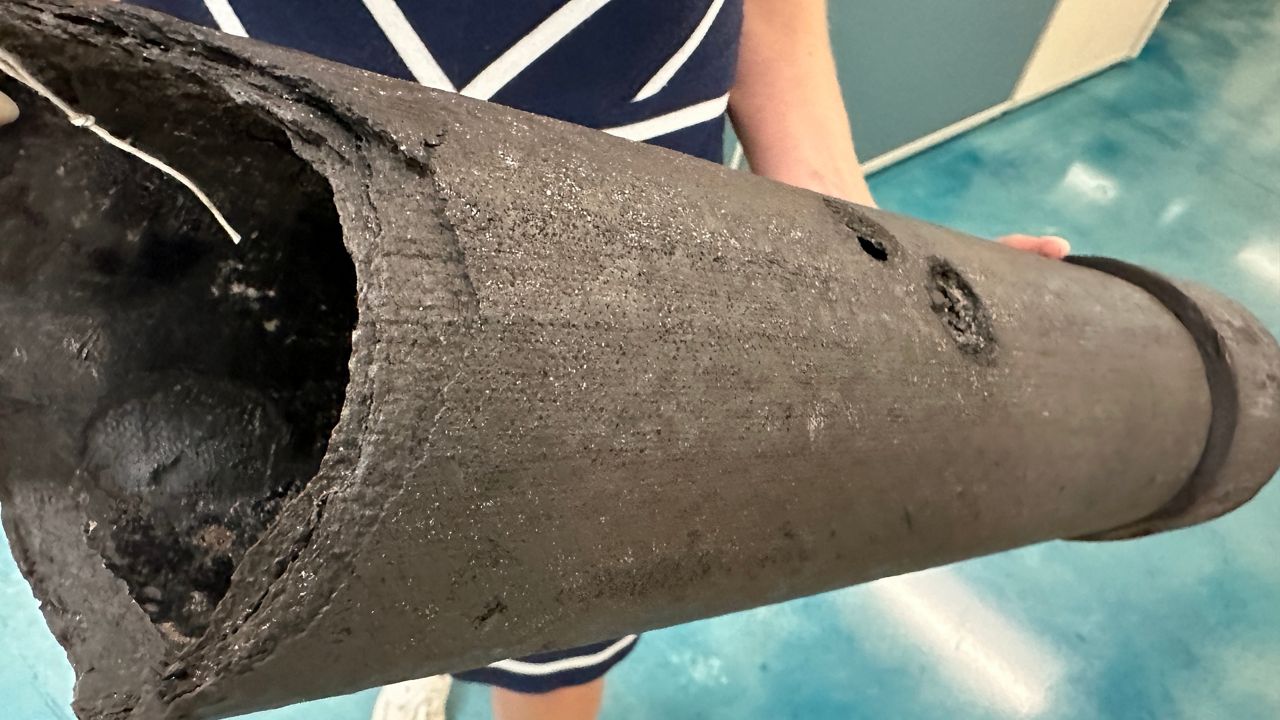ST. PETERSBURG, Fla. — The City of St. Petersburg launched a private lateral rehabilitation rebate program on Monday which covers the entire cost for eligible homeowners to replace their leaky sewer lines with PVC piping.
What You Need To Know
Phase 1 covers the entire cost for eligible homeowners to replace their leaky sewer lines
Phase 2 will launch in October 2026 and covers up to $5,000
The city has a $500,000 fund for the 32,000 properties which could be eligible during phase 1
A 2019 pilot study led to the innovative program
“The city will cover the full cost of inspections and rebates for phase 1 properties,” said Kira Barrera, St. Pete Water Resources Special Projects Coordinator. “For phase 2… those properties are eligible for up to a $5,000 rebate.”
Phase 2 will launch in October 2026.
Barrera said the average cost to replace a private leaky lateral is about $5,000. The old sewer lines are made of Orangeburg or cast iron and were installed in homes built across the city from the 1950s to 1970s, according to Barrera.
“The phase 1 area of the program is really targeting those areas that we’ve identified as having a lot of leaks, lots of groundwater and stormwater getting into the system,” she said. “We know that based on the age of the property, the elevation and then our flow monitoring data that we collect in the sewer system.”
Infiltration during storms can lead to manhole overflows, backups, and damage to homes and infrastructure. Fixing private laterals helps protect homes, improves neighborhood infrastructure, and lowers city-wide treatment costs, according to St. Petersburg Public Works.
“This program benefits both homeowners and the City,” said Claude Tankersley, Public Works Administrator. “It’s a key part of our long-term strategy to build a more resilient, efficient, and sustainable wastewater system for all of St. Pete.”
There’s a $500,000 fund for the 32,000 properties which could be eligible during phase 1 of this fiscal year, according to Barrera. The money will be doled out on a first come, first serve basis and replenished the following year.
Barrera said a 2019 pilot study led to the innovative program.
“It’s really exciting. To my knowledge, nobody else in the country has ever conducted a pilot study to really measure the benefits to the utility and the public,” she said. “Based on the pilot study data, we would see up to a 34 percent reduction in inflow and infiltration as a result of the private lateral program.”
Barrera said when coupled with the replacement Public Works has made to the public sewer lines the reduction rate goes up to 64 percent.
The city is funding the program with money it would’ve had to otherwise pay in fines to the Florida Department of Environmental Protection for wastewater spills. Nearly a decade ago, the city was placed under a DEP consent order after discharging 1 billion gallons of wastewater from 2015 to 2016.
“We’re using non-utility rate dollars,” said Barrera. “Those fines that we would have incurred because of the consent order and we applied them to a pollution prevention project.”
The city has also used the fund to purchase a $640,000 AquaFence to protect Lift Station 85 in downtown. Water Resources Director John Palenchar said the city has nearly finalized the consent order.
“We have completed all elements but are still finalizing the consent order closeout documentation for in-kind projects that we had in lieu of penalties,” he said. “We anticipate the final closeout documentation being sent to DEP by August. After that, it will be in DEP’s hands when they send us the closeout letter.”
The city has CIP funding to pay for two years of the program and has been exploring additional grants to fund it for up to 10 years.

